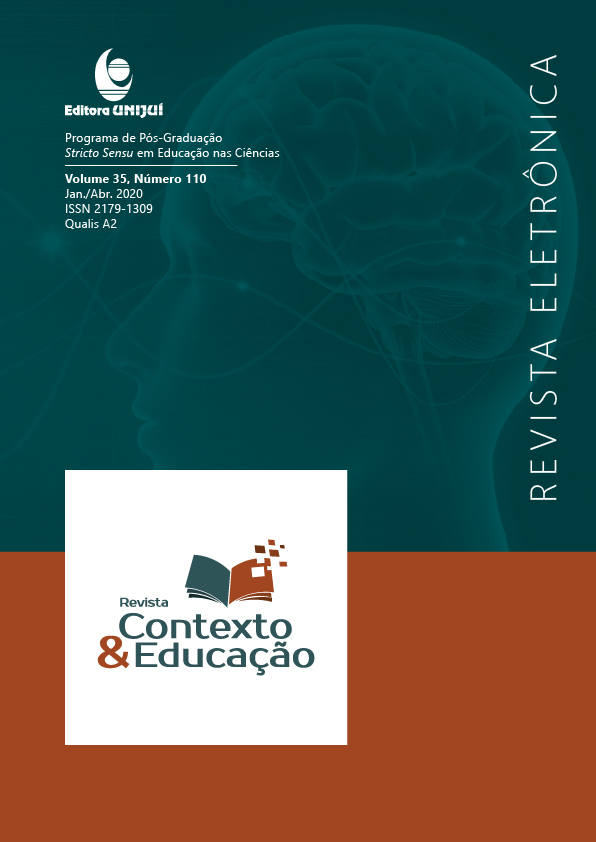ENSINO HÍBRIDO E EDUCAÇÃO AMBIENTAL: UMA INTERSECÇÃO POSSÍVEL
DOI:
https://doi.org/10.21527/2179-1309.2020.110.142-162Keywords:
Tecnologias digitais, Processo pedagógico, Meio AmbienteAbstract
This research presents theoretical-methodological contributions to the teaching of Environmental Education (EE) from the perspective of Blended Learning. The objective of this study was to investigate whether the organization of didactic activity, in the Blended Learning model, provides adequate conditions for the awakening of an ecological subject based on Critical Environmental Education. The research data were organized and interpreted through the Content Analysis and showed that the actions of EE made it possible to conduct a new perspective of the students in relation to the environment, denoting a desire for change and environmental transformation, however, it highlighted the need to broaden the EE discourse that considers social issues; also showed that technologies were allied in the teaching process, stimulating learning and culminating in actions of autonomy and criticality on the part of students.
Downloads
Published
How to Cite
Issue
Section
License
By publishing in Revista Contexto & Educação, authors agree to the following terms:
All works are published under the Creative Commons Attribution 4.0 International License (CC BY 4.0), which allows:
Sharing — to copy and redistribute the material in any medium or format;
Adaptation — to remix, transform, and build upon the material for any purpose, even commercially.
These permissions are irrevocable, provided that the following terms are respected:
Attribution — authors must be properly credited, a link to the license must be provided, and any changes made must be indicated.
No additional restrictions — no legal or technological measures may be applied that legally restrict others from doing anything the license permits.
Notices:
The license does not apply to elements that are in the public domain or covered by legal exceptions.
The license does not grant all necessary rights for specific uses (e.g., image rights, privacy, or moral rights).
The journal is not responsible for the opinions expressed in the articles, which are the sole responsibility of the authors. The Editor, with the support of the Editorial Board, reserves the right to suggest or request modifications when necessary.
Only original scientific articles presenting research results of interest that have not been previously published or simultaneously submitted to another journal with the same purpose will be accepted.
Mentions of trademarks or specific products are intended solely for identification purposes and do not imply any promotional relationship by the authors or the journal.
License Agreement (for articles published from October 2025): Authors retain the copyright to their article and grant Revista Contexto & Educação the right of first publication.


